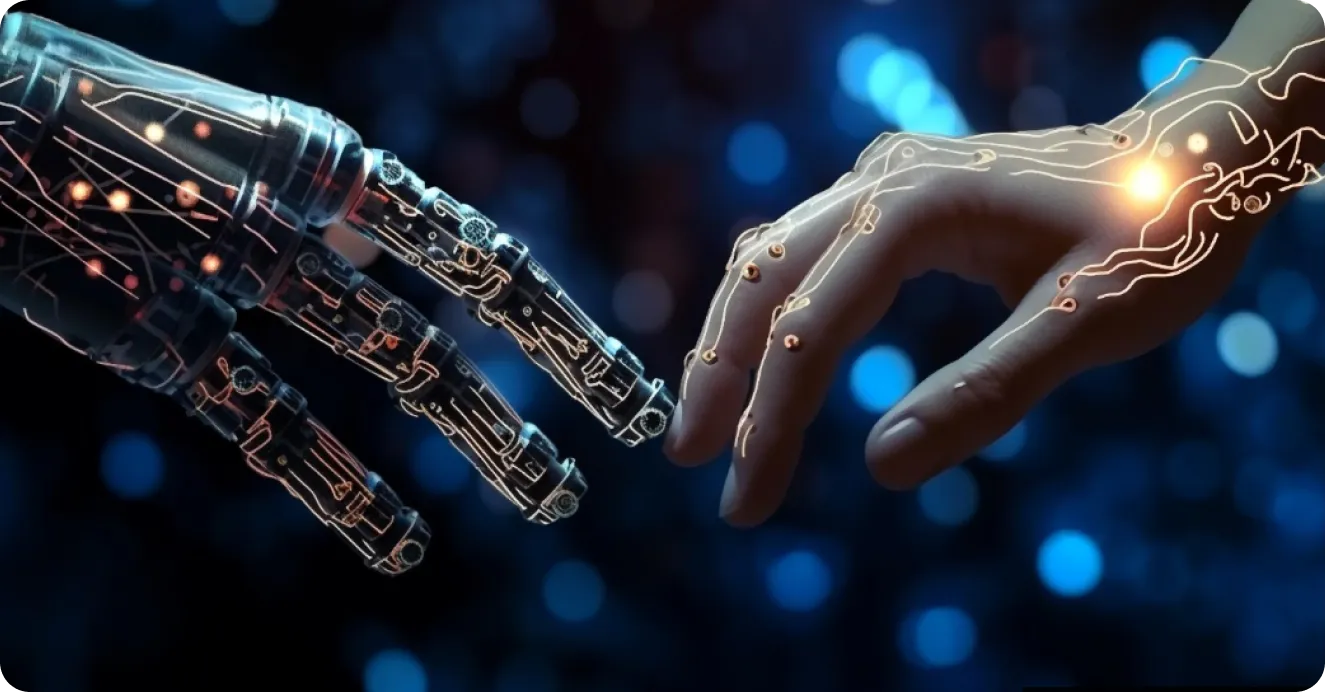Explore the impact of AI in gaming development on developers and players alike. From creating immersive worlds to enhancing gameplay, AI is shaping the future of gaming.

Explore the impact of AI in gaming development on developers and players alike. From creating immersive worlds to enhancing gameplay, AI is shaping the future of gaming.

The integration of artificial intelligence (AI) and gaming is becoming increasingly intertwined. Let's take a look at the impact of AI in gaming development on developers and players alike.
From the days of arcade games to the era of immersive virtual reality (VR), the gaming industry has relentlessly pushed forward at incredible speed. AI in gaming is truly reshaping the industry's very fabric. It elevates the player experience creating more dynamic, complex and immersive virtual worlds.
From simulating human behavior and designing dynamic challenges, machine learning is sustaining intense player involvement.
As AI in game development becomes more widespread it’s also enriching the experience for developers who leverage its capabilities to create more exciting games. As a result, this field is being propelled into uncharted territories of creativity and innovation.
The global AI in video games market is expected to reach $11.4 billion by 2032 from $1.1 billion in 2022.
Crucial drivers of this growth include the emergence of high-bandwidth network connectivity and the surge in smartphone adoption, vastly expanding the user base for mobile games.
The ongoing enhancement in processing power, particularly in graphics processing units (GPUs) and central processing units (CPUs), is also regarded as a significant catalyst.
In the past, video gaming relied heavily on manual processes, such as hand-crafted level designs and scripted behaviors of non-player characters (NPCs).
They followed static scripts, leading to predictable and repetitive interactions that diminished player engagement.
By today’s standards, they limited player experiences.

For example, in the original Super Mario Bros, the fictional species of Goombas always walked back and forth in a fixed pattern. This made their behavior formulaic, less life-like and, therefore, less exciting for players.
Another example of unvarying NPC actions can be seen in early role-playing games such as The Elder Scrolls: Arena.
This game featured various townspeople such as shopkeepers and guards who always gave the same responses and followed the same routines regardless of the player’s actions.
Now, with the advent of AI tools, NPCs are more realistic, while environments are rendered in 3D with textures that quickly generate intricate and diverse gaming landscapes.
Besides being able to absorb and stimulate players on a deeper level, AI tools also contribute to smoother gameplay.
For instance, AI-powered playtesting can identify issues such as balancing problems or glitches and fine-tune gameplay elements.
Meanwhile, real-time resource optimization results in faster load times and more responsive game performance.
AI technologies free up developers’ time to create more immersive and engaging gaming experiences by automating tedious tasks such as level design, character animation, bug testing and quality control.
By leveraging AI algorithms for procedural content generation and data analysis, developers can streamline the game development pipeline, reducing production time and costs while increasing efficiency and creativity.

This automation allows developers to tackle more challenging and exciting aspects of game development, such as designing unique gameplay mechanics, crafting compelling narratives and creating visually stunning environments.
As a result, developers are able to enjoy their work more, with fewer tedious tasks. This makes them more fulfilled in their roles and more engaged in the creative process.
Let's delve into how AI advancements are enhancing player engagement by looking at some of the key benefits AI brings:
Although the pros of AI in gaming are many, the disadvantages need to be carefully considered to ensure a balanced approach to game development and player experience.
Main drawbacks of AI in video games include:
The push towards AI-driven development raises the question: Will AI replace game developers?
Overall, the answer is no.
Publishers won’t be able to completely replace human resources with AI to develop video games without losing quality and engagement level.
That said, AI is expected to manage over half of production in game development within five to 10 years.
With this in mind, the future of gaming rests on the following key AI-powered technologies:
The integration of AI in video games marks a pivotal shift in the gaming landscape, impacting both developers and players alike.
AI-driven advancements are propelling the industry towards unparalleled levels of innovation and engagement.
For players, AI translates to more powerful immersion and personalization, with dynamic gameplay experiences tailored to individual preferences.
However, it's essential to acknowledge the potential drawbacks of AI, such as privacy concerns and dependency risks.
Looking ahead, the future of gaming lies in embracing key AI-powered technologies like GANs, PCG, Emotion AI, NLP and RL, which promise to redefine the frontiers of creativity and engagement in the gaming industry.
While AI may not replace game developers entirely, it's poised to become an indispensable tool in shaping the future of gaming development.
Explore our GitHub repository and join our community to stay up to date on the latest advancements in AI technology. Dive into the transformative impact of AI on autonomous driving, industrial production, healthcare and beyond.